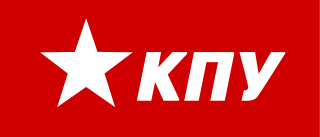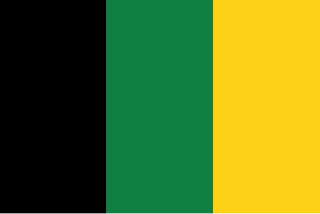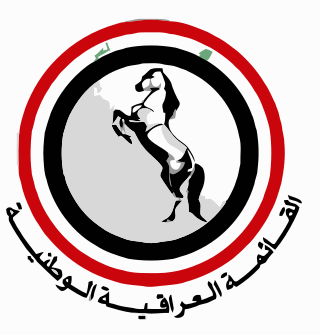
Eswatini, formally the Kingdom of Eswatini and also known by its former official name Swaziland and formerly the Kingdom of Swaziland, is a landlocked country in Southern Africa. It is bordered by Mozambique to its northeast and South Africa to its north, west, south, and southeast. At no more than 200 km (120 mi) north to south and 130 km (81 mi) east to west, Eswatini is one of the smallest countries in Africa; despite this, its climate and topography are diverse, ranging from a cool and mountainous highveld to a hot and dry lowveld.

Artifacts indicating human activity dating back to the early Stone Age have been found in the Kingdom of Eswatini. The earliest known inhabitants of the region were Khoisan hunter-gatherers. Later, the population became predominantly Nguni during and after the great Bantu migrations. People speaking languages ancestral to the current Sotho and Nguni languages began settling no later than the 11th century. The country now derives its name from a later king named Mswati II. Mswati II was the greatest of the fighting kings of Eswatini, and he greatly extended the area of the country to twice its current size. The people of Eswatini largely belong to a number of clans that can be categorized as Emakhandzambili, Bemdzabu, and Emafikamuva, depending on when and how they settled in Eswatini.

Sami Süleyman Gündoğdu Demirel was a Turkish politician, engineer, and statesman who served as the 9th President of Turkey from 1993 to 2000. He previously served as the Prime Minister of Turkey seven times between the years 1965 and 1993. He was the leader of the Justice Party (AP) from 1964 to 1980 and the leader of the True Path Party (DYP) from 1987 to 1993.

The Republican National Committee (RNC) is the primary committee of the Republican Party of the United States. Its members are chosen by the state delegations at the national convention every four years. It is responsible for developing and promoting the Republican brand and political platform, as well as assisting in fundraising and election strategy. It does not have direct authority over elected officials. It is also responsible for organizing and running the Republican National Convention. When a Republican is president, the White House controls the committee. According to Boris Heersink, "political scientists have traditionally described the parties' national committees as inconsequential but impartial service providers."

Mswati III is Ngwenyama (King) of Eswatini and head of the Swazi royal family. He heads Africa’s last absolute monarchy, as he has veto power over all branches of government and is constitutionally immune from prosecution.

The Communist Party of Ukraine is a banned political party in Ukraine. It was founded in 1993 and claimed to be the successor to the Soviet-era Communist Party of Ukraine, which had been banned in 1991. In 2002 it held a "unification" congress when both "old and new" parties merged. The party is a member of the Moscow-based Union of Communist Parties, an umbrella organisation for all communist parties of the former Soviet Union. The party has been led by Petro Symonenko since it was founded.

The Parliament of Eswatini is bicameral, consisting of a lower chamber and an upper one. Some of the members of both chambers are elected, while the rest are appointed by the King of Eswatini. Election is by secret ballot in a first-past-the-post system of voting. Members of both chambers serve for five-year terms. All candidates run on a non-partisan basis, as political parties are banned.

The Ngwane National Liberatory Congress (NNLC) is a political party in Eswatini. It was founded on 12 April 1963 as a breakaway party from the Swaziland Progressive Party (SPP) led by Dr. J. J. Nquku.

The People's United Democratic Movement is the largest opposition party in Eswatini. It is a democratic socialist party. Formed in 1983 at the University of Eswatini, it is led by Mlungisi Makhanya.

The Nationalist Movement Party is a Turkish far-right, ultranationalist political party. The group is often described as neo-fascist, and has been linked to violent paramilitaries and organized crime groups. Its leader is Devlet Bahçeli.

The Crescent Star Party is a conservative political party in Indonesia based on Islam

The House of Assembly of Eswatini is the lower chamber of the country's bicameral Parliament. The Assembly may debate and pass bills, although as the country is an absolute monarchy, the role of the legislature is mostly advisory.

The Alliance Party was a political coalition in Malaysia. The Alliance Party, whose membership comprised United Malays National Organisation (UMNO), Malaysian Chinese Association (MCA) and Malaysian Indian Congress (MIC), was formally registered as a political organisation on 30 October 1957. It was the ruling coalition of Malaya from 1957 to 1963, and Malaysia from 1963 to 1973. The coalition became the Barisan Nasional in 1973.

The Iraqi National Movement (INM), more commonly known as the al-Iraqiya List, was an Iraqi political coalition formed to contest the 2010 parliamentary election by Iraqi Vice President Tariq al-Hashimi's Renewal List, the Iraqi National Accord led by former Prime Minister Iyad Allawi and the Iraqi National Dialogue Front led by Saleh al-Mutlaq. The party included both Shi'a leaders and Sunni leaders and claimed to be secular and non-sectarian.

General elections were held in Swaziland between 16 and 17 May 1972 to elect members of the House of Assembly. The result was a third successive victory for the royalist Imbokodvo National Movement, which won 78% of the vote and 21 of the 24 seats, based on a voter turnout of 74.0%. The Ngwane National Liberatory Congress won three seats, but five days after the election one of its successful candidates was served with a deportation order as an "undesirable alien". Although he subsequently won a High Court ruling against the order, in November the parliament created a tribunal through which his citizenship was revoked. The Appeal Court declared the act unconstitutional, and on 12 April 1973 the parliament passed a motion that "called on the king to devise ways and means of dealing with the crisis". The result was that King Sobhuza II suspended the constitution, dismissed Parliament, banned all political parties and became an absolute monarch.

The Aam Aadmi Party is a political party in India. It was founded on 26 November 2012 by Arvind Kejriwal and his then-companions, following the 2011 Indian anti-corruption movement against then Indian government of Indian National Congress. The AAP is currently the governing party in the Indian state of Punjab and the union territory of Delhi. On 10 April 2023, the AAP was officially granted the status of national party by the ECI. The party's election symbol is a broom. The party is currently part of the coalition I.N.D.I.A. Alliance.

The Opposition Platform – For Life was a pro-Russian and Eurosceptic political party in Ukraine.

Government of the Kingdom of Eswatini is the union government created by the constitution of Eswatini where the monarch holds supreme executive, legislative, and judicial powers. The Ngwenyama (lion) is a hereditary leader, rules the country, with the assistance of a council of ministers and a national legislature.













